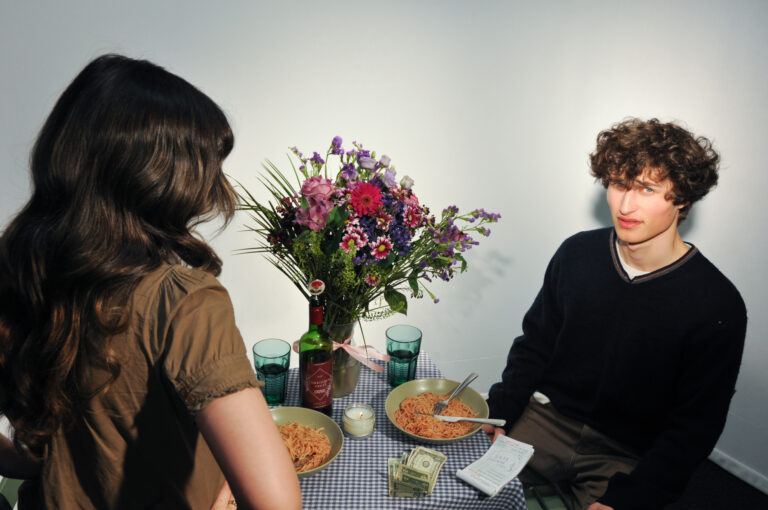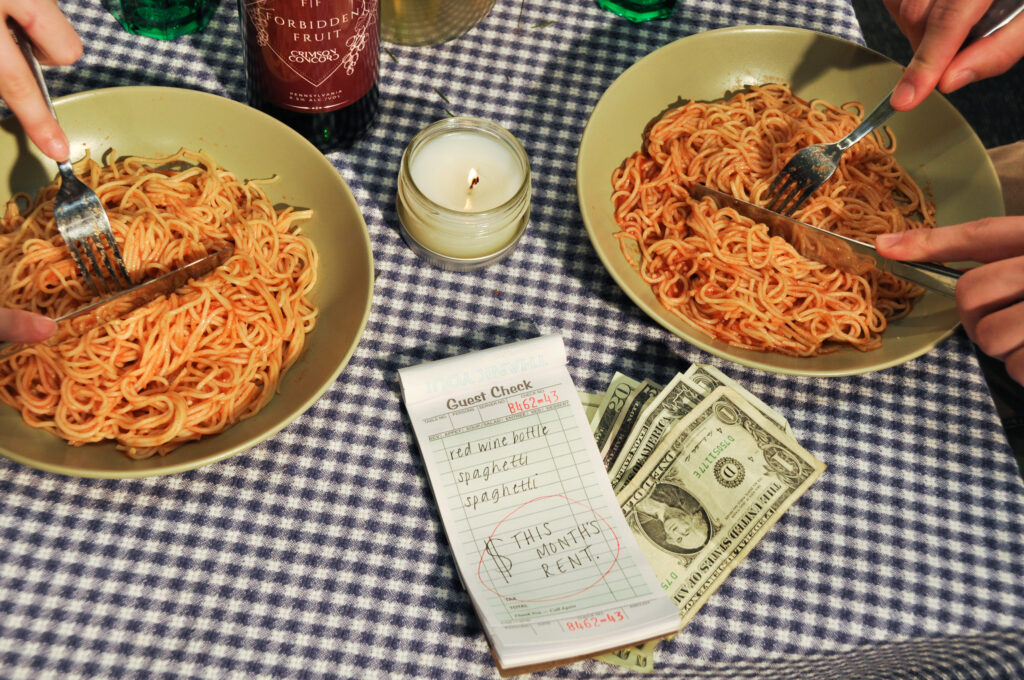
It’s not often that I feel bad for a man.
They have their typical lamentations—grumblings about the “earth-shattering” pain of getting hit in the groin or the occupational hazards they face in blue-collar work. But isn’t restrictive healthcare policy, the gender pay gap, frequent sexual harassment and the chronic underrepresentation that women face essentially a lifelong, perpetual kick to the metaphorical balls?
And yet, there is one area where I feel a flicker of empathy for the male experience: the financial pressure young men face when it comes to dating. In a culture where chivalry is still tangled up with financial status, the expectation for men to foot the bill remains intact. And in an economy where chicken eggs go for Fabergé prices, I expected that men would be struggling with these age-old traditions.
So, I talked to men. And some more men. And a couple more men. Their answers surprised me, but the consensus never wavered: men pick up the tab, gladly. Any suggestion otherwise is an outrageous implication and a threat to the patriarchal system they’ve inherited.
“If a girl asked if she could pay the bill, it’s like, ‘Are you going to take me back to your crib after and fuck me, too?’” says Gus, a 21-year-old man.
Despite his blunt and colorful wisecrack, the message is clear: paying for dates is a demonstration of masculinity as much as it is a financial decision.
“I think that with men paying, it doesn’t necessarily mean they’re expecting something in exchange for it,” Gus says. “But you know, there’s rules to this shit.”
The rules, he says, are second nature. And he doesn’t necessarily disagree with them; most men willingly participate in the age-old tradition.
“You just get used to it,” he adds.

The notion that a man should pay for his date far predates Gus’ experiences. The tradition comes from the masculine ideal of a provider—the belief that by shouldering burdens, financial or physical, a male proves his worth. And it had its practical reasons, too. Until the Equal Credit Opportunity Act of 1974 prohibited banks and creditors from discriminating based on sex, women were often denied the right to open accounts. To this day, women earn 17% less than their male counterparts. And still, women feel they pay more than men ahead of the date—expenses for hair, makeup, nails and clothes quickly add up. For some, the expectation that the man should pay in the early stages extends past the gender binary.
“Especially for the first date, the woman puts in a lot more effort in a heterosexual relationship,” says Sunehra, 20, who has been dating her boyfriend for over a year. “They do their makeup, they are usually wearing expensive clothes, and so I think that’s the trade-off, like, ‘I dressed myself up for this, so you pay for my food.’”
But as women have made up ground in the workplace and secured positions in higher-paying, male-dominated fields, it would stand to reason that society could expel the misogynistic customs surrounding dating. Paying can be romantic for women as easily as men. Sunehra still offers to eat the cost of her plate, but says trouble arises when her date sees her gesture as a threat.
“I think it’s a problem when they get offended,” Sunehra says. “Then it makes it look like paying is a masculine thing. I offer to pay because it’s my money and I can choose what to do with it.”
Many women don’t move for their wallets out of obligation. It seems they take just as much pride in extending their hard-earned cash to those they love or are potentially interested in.
“I work really hard for the money that I want to spend, and when I want to spend it, I want to spend it,” says Evelyn, 21. “So, if I’m offering to spend money for a date, that means I want to do this for you. So [when men repeatedly insist to pay], I feel like, ‘Oh, now you’re kind of demeaning me and belittling the money I make.’”
Evelyn has dated her fair share of “broke boys.” She’s worked hard to achieve financial independence since her teenage years, stuffing away money like a squirrel burying acorns. Many men she’s gone out with, on the other hand, seemed to have forgotten the harsh realities of a scarce winter. If women can take comfort in knowing they have enough money for a down payment on a modest starter home in the boonies, why do the men they’re courting, who couldn’t scrape together 100 bucks in a pinch, always insist on paying?

Luca, another straight 21-year-old, sees this obligation to pay as a simple reality.
“I’ve never not paid fully on any date I’ve been on,” he says. He appreciates when a woman offers to split, but ultimately? “I’m still going to pay.”
This reach-for-the-bill reflex isn’t always about power dynamics or pride—sometimes it’s about security.
“It feels like if you pay, she’ll like you better,” Charlie, a 21-year-old, says. “I’d rather be safe than sorry.”
Of all the people I interviewed, gay men seemed to have the most level-headed perspective on how the financial particulars of early dating should go.
“My philosophy always has been splitting the bill,” Brett, 30, says. “It always felt the most natural and easiest way, because if someone pays, that implies that someone should reciprocate the next time, and that means we got to go out again. So, for early dates, I always felt like down the middle was the easiest way to do it.”
Each man I spoke to claimed that picking up the tab had nothing to do with ancient practices or the “societal pressure” I proposed. But no man could clarify their inclination to pay on every single date beyond “It’s just what you do.” Several vouched for paying as a signal of sincerity but wouldn’t want to see the same act of kindness from the woman’s side of the booth.
“It’s a gesture you want to do for her,” Gus insisted. “Not a societal pressure.”
Chris, 23, agrees. “I do it because I want to do something nice for the person I’m seeing, not because society tells me to,” he says.
But if paying equates to sincerity, then why aren’t they receptive to women returning the favor? I asked each man about how money plays into their concept of romance and effort, and each man was fine with perceiving their money moves as an investment in the relationship rather than a burden.
So, each of my interviews went about the same: Would you let a woman pay? “No.” Would you date a woman who couldn’t pay? “Yes.” Would you expect a woman to date a guy who can’t pay? “Hell no.” Why? Because it’s the societal expectation? “No.”
Whatever. I came out of these interviews with even less clarity on the economics of dating than when I started. Maybe men are so comfortable with the current power structures that they fail to see how the lack of equilibrium harms them. Or maybe I should fault the woman in me for expecting that men think critically about the disparities that haunt the gender binary at all.
While I always appreciate the gesture, if you’re going to insist on being a provider, don’t be surprised when I order with purpose. So, if men don’t want to help dismantle the patriarchy, I’ll have tuna tartare with caviar, the filet mignon, two baked potatoes and a cognac neat. Cheers to tradition!